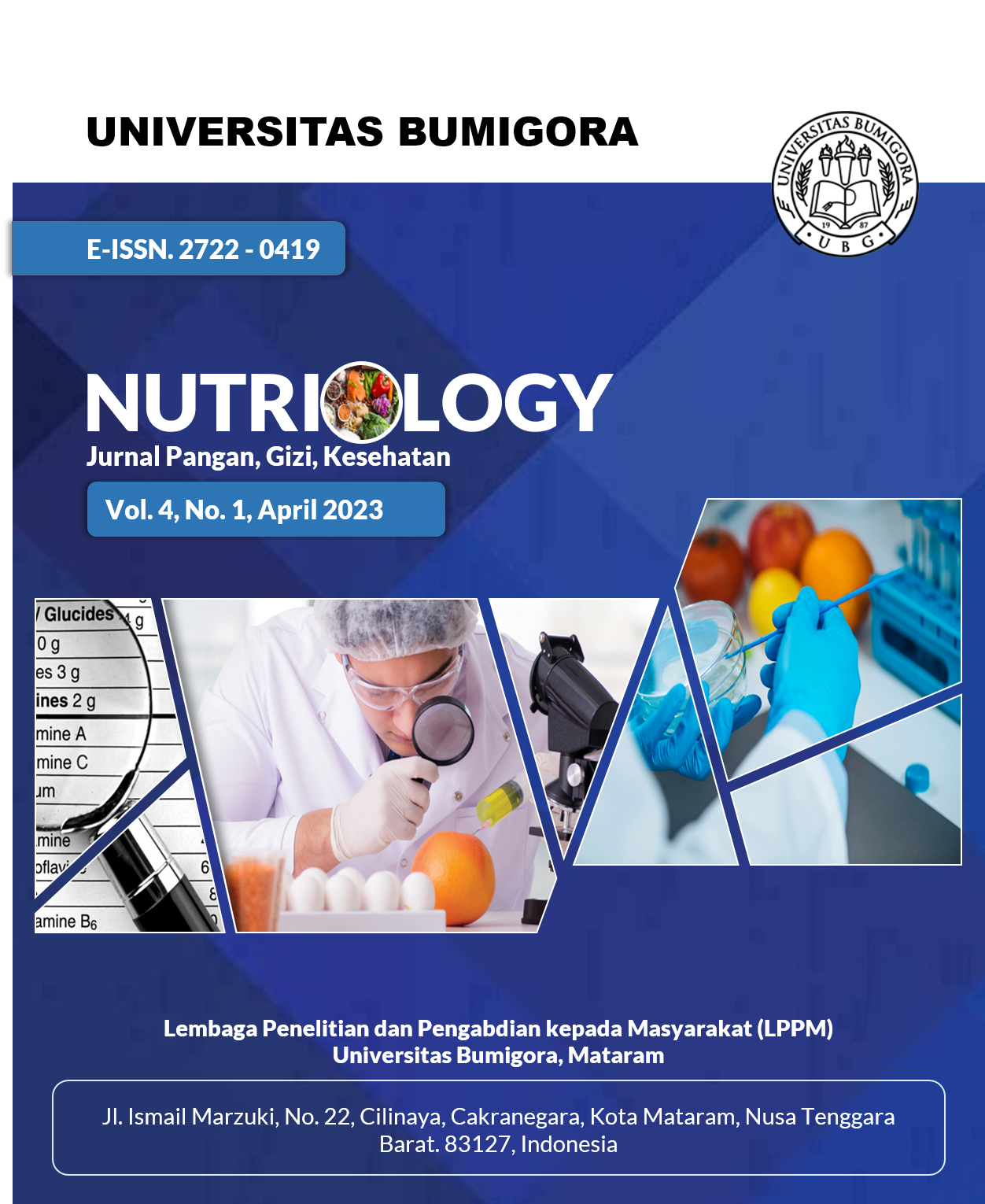Ekstraksi Alginat dari Rumput Laut Coklat (Phaeophyceae) dan Pemanfaatannya Sebagai Pengemulsi (Emulsifier) pada Produk Pangan
DOI:
https://doi.org/10.30812/nutriology.v4i1.2859Abstract
Alginate is used as an emulsifier in food production. Its non-toxic, biocompatible, biodegradable, and hydrophilic properties are very promising for industrial use. Alginate can be obtained from brown seaweed because the alginate content in brown seaweed reaches 40% of its dry weight. The alginate extraction process can be carried out in 5 main stages, 1) extraction process using mineral acids, 2) filtering or centrifugation process, 3) re-soaking of the residue using an alkaline solution, 4) precipitation process, and 5) purification. Emulsifiers are molecules that adsorb on the surface of the droplets formed during the homogenization process and form a protective membrane that keeps the droplets from agglomerating. The use of alginate as an emulsifier in food has been carried out by several researchers. The results indicate that alginate substitution in food products has a significant effect on emulsion stability, where the stability of emulsions using alginate is higher than that of emulsions without alginate substitution. In addition, there was a positive interaction between alginate-substituted food products and food products without alginate substitution (control) on storage time. This research aims to provide an overview of the method or process of extracting alginate from brown seaweed (Phaeophyceae) and utilizing alginate as an emulsifier for food.










